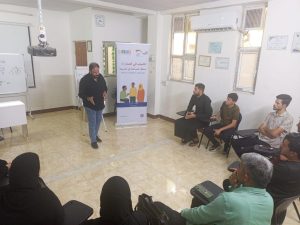(H.M), a 40-year-old woman from one of the villages in Hawija district, says:
Before the armed groups (ISIS) took control of our area, we lived in a village where most residents belonged to the same tribe and were related to each other—except for our family, which consisted of four sisters and one brother. We owned farmland and a house. There were frequent tensions between my brother and some villagers due to the pressure they exerted on our family to force us to leave. Everyone was shocked when the extremist armed groups (ISIS) seized control of our area, and most of the village’s youth quickly joined them. A few days later, we saw pickup trucks carrying armed men heading toward our house. They stopped at our door and called out my brother’s name. When he came out, they began beating and insulting him harshly. They tied his hands and feet, then bound his body to one of their vehicles and dragged him for long distances through the village. Our cries of pain echoed as we witnessed what happened to our brother. When we asked one of them why they did this, he told us that our brother was considered an apostate for not supporting their ideology and actions. We later learned that some villagers—people we knew well—had brought these militants to force us out. We fled to another village, leaving our land behind, which is now worked by someone else for a meager rental fee. After the liberation, we decided not to seek revenge against those who reported our brother and caused us to abandon our village. Forgiveness is the best path to peace and to letting go of the past.
https://www.instagram.com/national_institute_for_h.r/p/DRNPEq-iIbZ/



